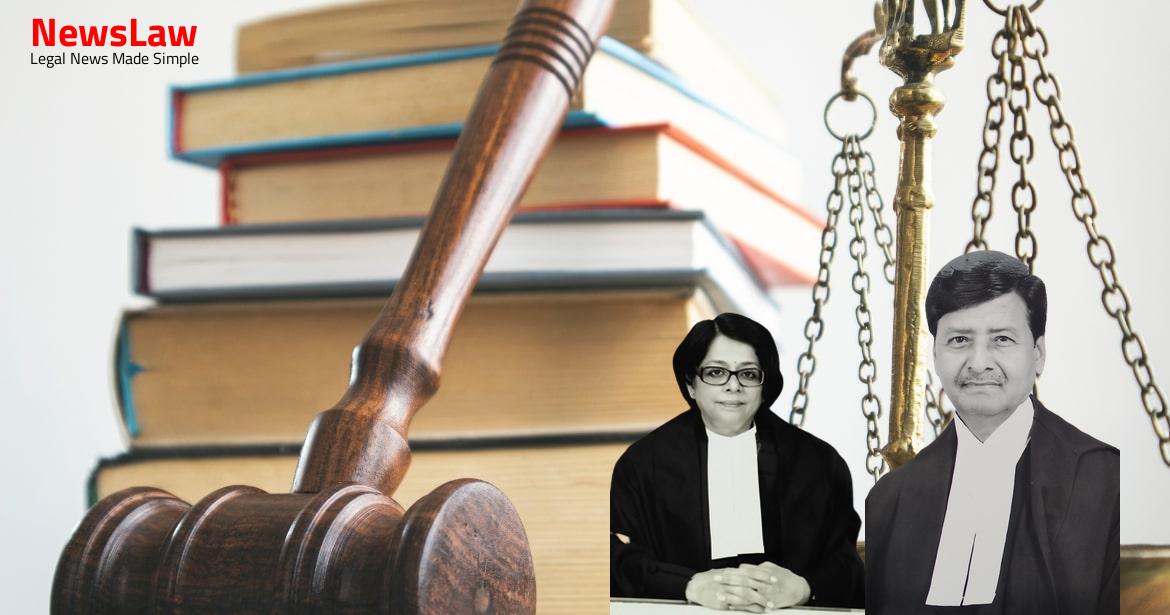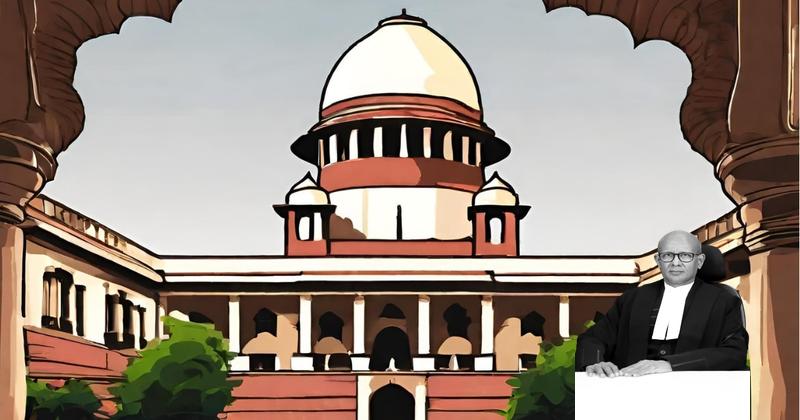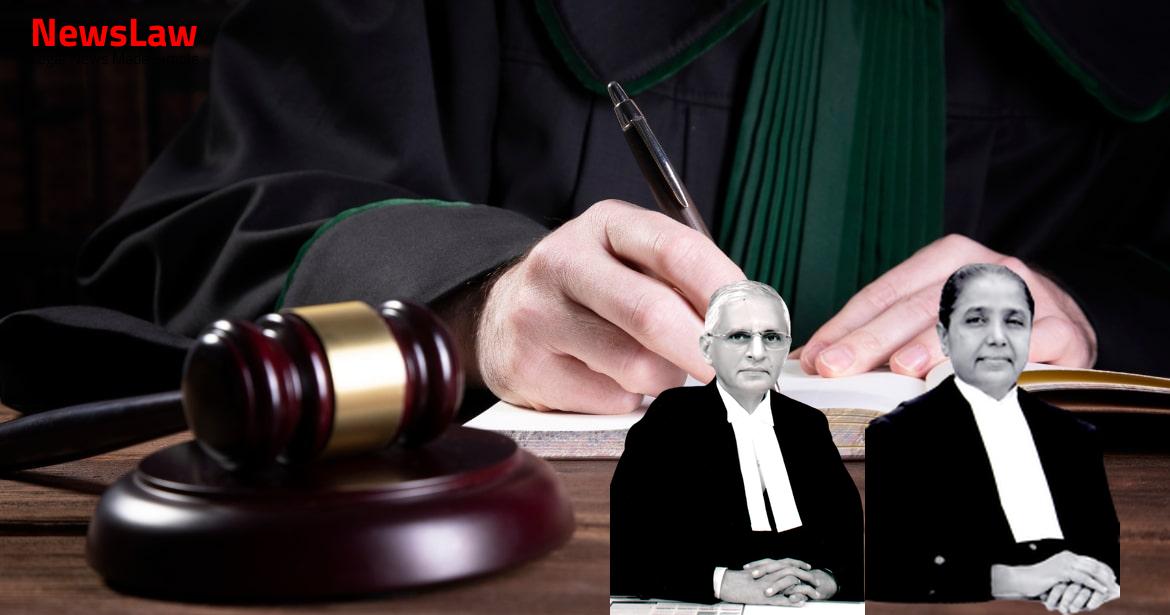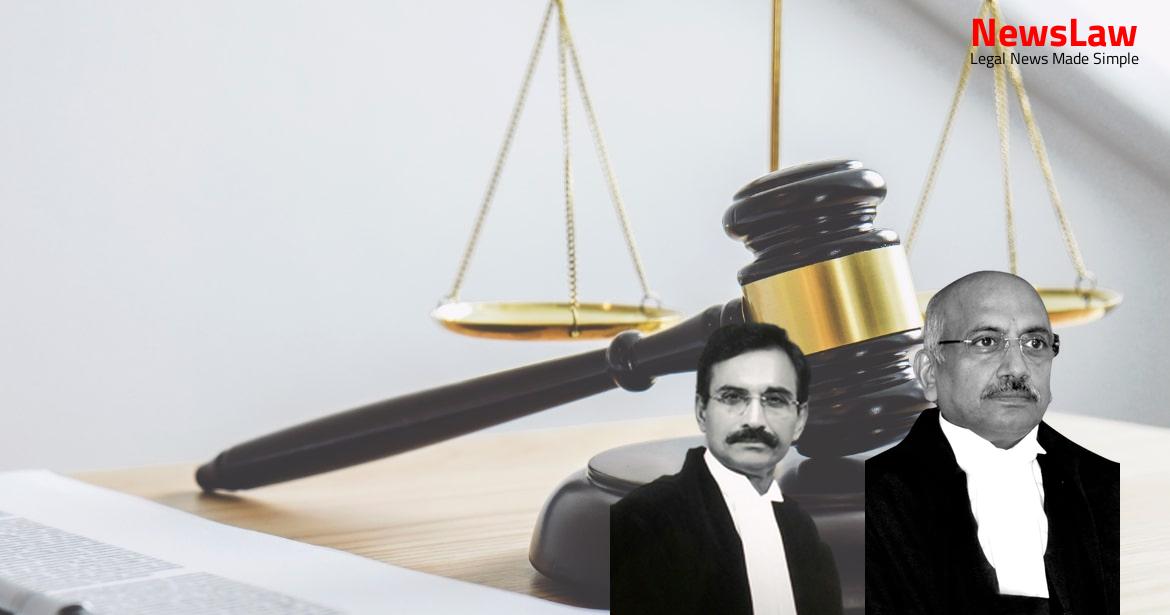In a recent court judgment, the legal analysis of consent orders and the rights of the appellants took center stage. The court meticulously examined the implications and considerations surrounding the consent orders, shedding light on the complexities within this legal case. Let’s delve deeper into the nuanced details of this intriguing analysis.
Facts
- The appellants filed Objections to set aside the award u/S. 34, which were dismissed by Order dated 03.10.2006.
- The present Civil Appeal challenges the Judgment and Order dated 22.07.2014 passed by the Bombay High Court in Appeal No 558 / 2007, which dismissed the appeal filed by the appellants against the Consent Order dated 16.02.2005 in Suit No 1335 / 1988.
- Mr. Anil G. Shah, the husband and Power of Attorney holder of Appellant No.2-Nina Anil Shah appeared in court, where I.A. No 9 / 2016 filed by the said Appellant was allowed vide Order dated 28.11.2016 at the risk of the Appellants.
- On 27.03.2018, the appellants filed I.A. No 48308 / 2018 to implead Oswal Enterprises as a party to the present proceedings.
- The Court appointed Mr. Nikhil Nayyar, learned Senior Counsel as Amicus Curiae to assist the Court on behalf of the Appellant.
- During the pendency of the appeal, the Respondent No 2 entered into a compromise with the Vaity family on 16.02.2005.
- The Appellant No.2 later filed Suit No 3162 / 2005 before the Bombay High Court to challenge the consent decrees dated 16.02.2005 and 03.10.2005.
- The Suit involved disputes over land admeasuring 5082 square yards in Village Mulund, Greater Bombay.
- The Suit was disposed of on consent terms arrived between the parties.
- The Suit No. 1335 / 1998 was decreed as per the Consent Terms (Second Consent Decree).
- The Bombay Court appointed Justice A.C. Agarwal as the sole arbitrator on 22.07.2005.
- An appeal was filed under Section 37 of the 1996 Act, and the division bench remanded the application for fresh consideration on 21.07.2014.
- A single judge of the High Court partly allowed the application under Section 34 on 05.06.2017.
- The sole arbitrator passed an award on 01.08.2006 stating that the partnership firm was dissolved on 15.07.2004.
- The High Court dismissed the appeal challenging the Consent Terms dated 16.02.2005 on 22.07.2014.
- This Court issued Notice for exploring a settlement between the appellants and Kusum Gorule on 19.11.2014.
- The appellants filed an application to delete members of the Vaity family from the array of parties.
Also Read: Analysis of ‘Cause of Action’ in Jurisdictional Transfer Petition
Arguments
- The High Court failed to examine the dispute raised by the appellants on merits.
- The filing of a substantive suit by the appellants cannot be a ground to reject their appeal, especially due to a patent error in passing the consent decree without their involvement.
- The order dated 16.02.2005 should have been recalled as it was passed in the absence of the appellants and to their detriment.
- The conveyance deed executed in favor of Oswal Enterprises disregarded the rights of the appellants, leading to serious jeopardy of their rights.
- The appellants are not signatories to the consent orders dated 16.02.2005 and 03.10.2005 and have challenged them in a pending substantive suit before the Bombay High Court.
- Learned counsel for the Respondents supports the judgment of the High Court.
- The rights of the Appellants have been protected by the High Court.
- The subject matter of challenge in Suit No. 3162/2005, filed by the Appellants, overlaps with what is prayed for in the instant appeal.
Also Read: Interpretation of Limitation Period for Filing Objections under Arbitration Act
Analysis
- Suit No.1335/1988 was filed by Kusum Gorule and the Vaity family, leading to a decree on consent terms in 2005.
- The consent orders of 16.02.2005 and 03.10.2005 do not bind the present appellants as they were not parties to the proceedings at that time.
- The High Court found no error in its judgment regarding the appellants’ non-binding status to the previous consent orders.
- The Division Bench stated that the appellants can pursue their remedy in the substantive suit independently.
- The appellants’ appeal under Section 96 of the Code challenges the consent decree and is to be examined on its own merits.
- The suit was disposed of by the Court based on consent terms between the parties in 2005.
- The appellants later impleaded in the case have a right to appeal under Section 96 of the CPC.
- Since the appellants were not part of the consent orders, the court could not assess the legal implications of the orders dated 16.02.2005 and 03.10.2005.
Also Read: Land Acquisition Compensation Determination Discrepancy
Decision
- The substantive suit filed by the Appellants questioning the Consent Orders is open for independent examination on its own merits.
- The rights of the Appellants have been protected by the High Court in the judgment dated 22.07.2014.
- The observations/findings in the High Court’s judgment do not prejudice the rights of the Appellants.
- The pending Suit No 3162/2005 filed by the Appellants should be examined independently on its own merits without being influenced by the High Court’s earlier observations.
Case Title: M/S. CHITRALEKHA BUILDERS & ANR. THROUGH ANIL G. SHAH POWER OF ATTORNEY & HUSBAND OF THE PARTNER Vs. G.I.C. EMPLOYEES SONAL VIHAR CO-OP. HOUSING SOCIETY LTD. (2021 INSC 130)
Case Number: C.A. No.-000946-000946 / 2016



